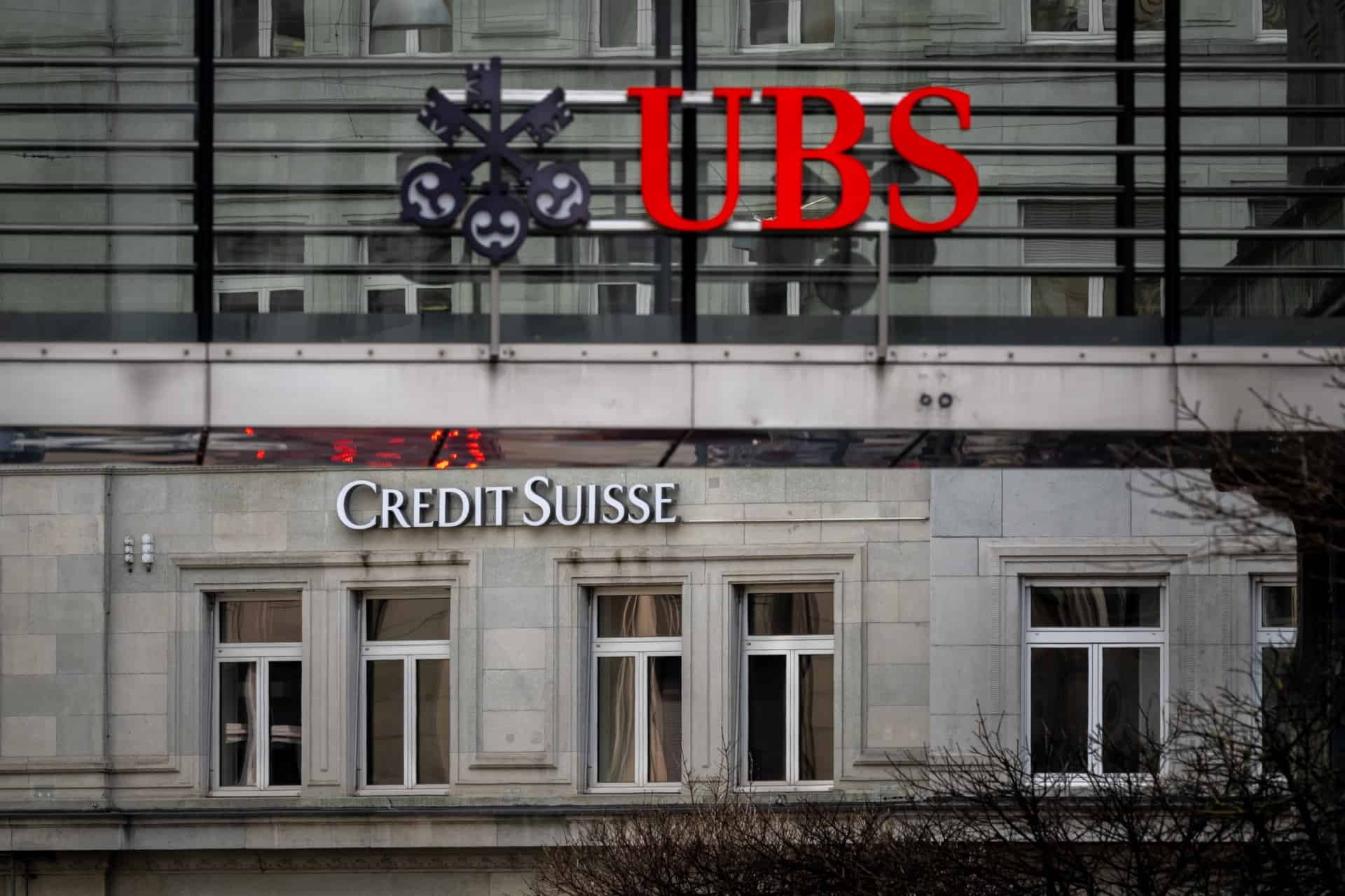Zurich, Switzerland– UBS said Tuesday it would likely complete its takeover of stricken rival Credit Suisse in the second quarter, as the bank posted an underwhelming first quarter net profit of $1.0 billion.
All eyes were on what shape Switzerland’s biggest bank is in as it prepares to carry out its forced alliance with Credit Suisse.
Analysts polled by the Swiss financial newswire AWP expected UBS’s first quarter net profit to tick in at around $1.7 billion, down from $2.1 billion a year ago.
Though it managed to rack up a $1.0 billion net profit for the first three months of 2023, UBS said it had seen strong client inflows, as it prepared to integrate the country’s second-largest bank.
Net income for the first quarter was reduced by an increase in litigation provisions of $665 million to settle an old dispute linked to the subprime crisis in the United States.
The bank said it was in advanced discussions with the US Department of Justice and reported progress towards settling the case.
UBS said it saw a net inflow of new money into its global wealth management division of $28 billion, of which $7 billion came in the last 10 days of March, following the takeover announcement.
Q2 takeover target
Credit Suisse revealed Monday that nearly $70 billion had been withdrawn from the bank in the first three months of 2023 alone, publishing perhaps its final quarterly results ahead of the merger.
Most of the withdrawals were made in panic around the March 19 announcement that UBS had been strongarmed by Swiss authorities into a $3.25-billion shotgun marriage to ensure its smaller, but still “too-big-to-fail” rival, did not go bankrupt.
“We are focused on completing the acquisition of Credit Suisse, most likely in the second quarter of 2023,” UBS said.
“While acknowledging the magnitude of, and complexity associated with, the integration and restructuring of Credit Suisse, we believe that this combination presents a unique opportunity to bring significant, long-term value to all of our stakeholders.”
Returning chief executive Sergio Ermotti said the transaction would help to “reinforce the leading position of the Swiss financial centre and will be of benefit to the entire economy.”
Andreas Venditti, an analyst at Swiss investment managers Vontobel, said UBS client activity levels could be subdued in the second quarter, though net interest income was likely to be up year-on-year.
“UBS’s investment case has changed, from a capital-generative firm with high returns of capital to shareholders, to a complex restructuring story. At least UBS has secured a reasonable price and significant loss protections,” he said.
Credit Suisse on the slide
UBS has created a special risk management post focused exclusively on the merger and said Monday that its current head of overall risk management would prolong his mandate to help usher through the extremely delicate operation.
Credit Suisse revealed Monday the desperate situation it found itself in when the takeover deal was pushed through, with its results clearly speaking to the challenges ahead for UBS.
The bank said it saw 61.2 billion Swiss francs ($68.6 billion) withdrawn in the first quarter of 2023 alone, following on the heels of 110.5 billion Swiss francs in withdrawals in the fourth quarter last year.
While Credit Suisse said those outflows had “moderated”, it acknowledged they “have not yet reversed”.
Credit Suisse reported deceptively-bloated net profits for the first quarter, which swelled to 12.4 billion Swiss francs ($14 billion), up from a significant loss a year earlier.
But that was largely attributed to holders of high-risk Credit Suisse debt being wiped out in the emergency takeover deal.
It warned of “substantial” losses to come.

